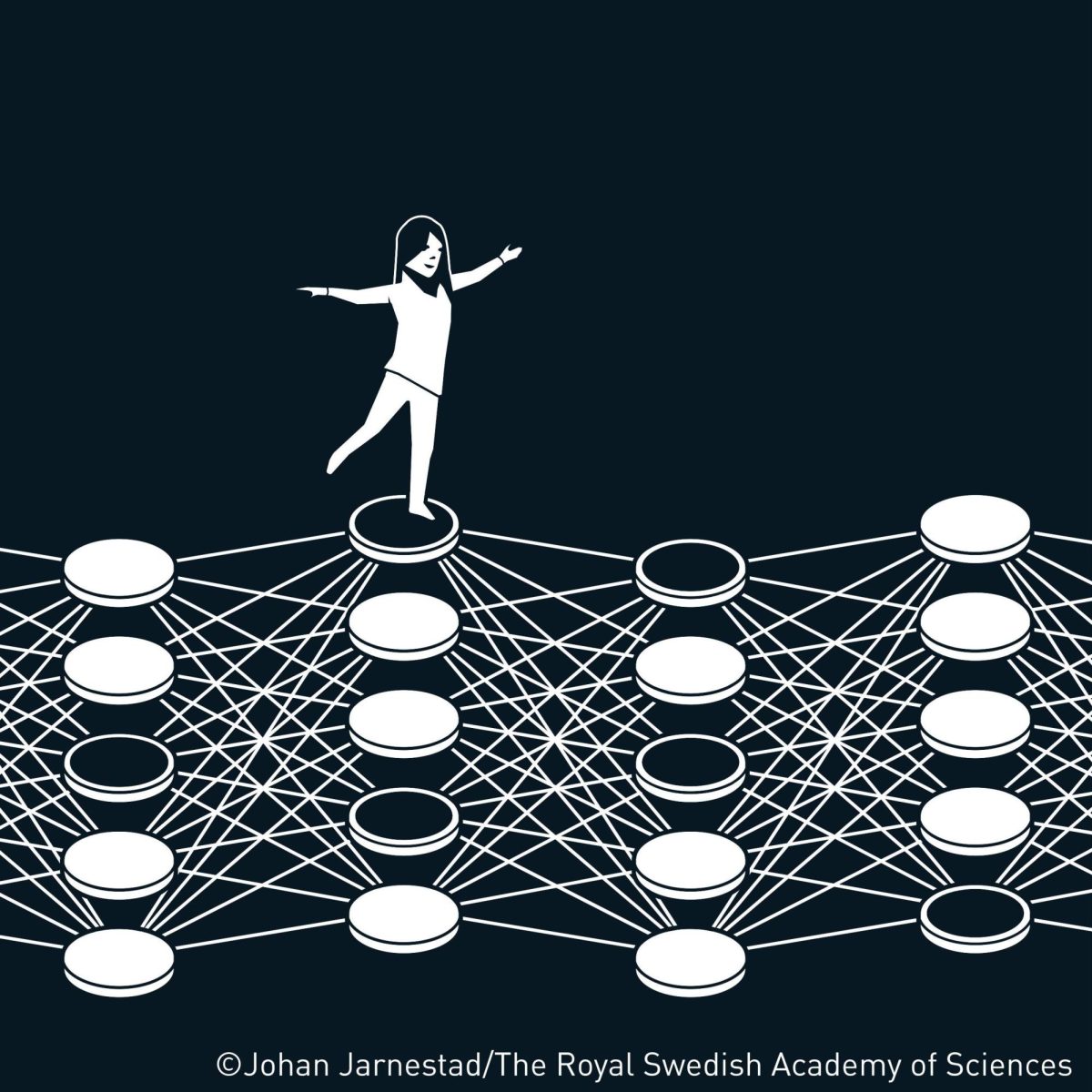The 2024 Physics Nobel Prize was jointly awarded to John J. Hopfield and Geoffery E. Hinton for “foundational discoveries and inventions that enable machine learning with artificial neural networks.”
This appears bizarre at the surface level, with the highest honor in physics going to a duo of computer scientists, and the decision has sparked much controversy in the scientific community.
For many non-academics, giving the Nobel Prize in Physics to computer scientists seems outlandish. With massive strides in other, more physics-related fields such as quantum computing and nuclear fusion, choosing AI over these highly researched topics has caused discontentment.
Many people believe other researchers should have received the Nobel Prize. “This [decision] strips the award [from] many other physicists who may have, subjectively, impacted the field of physics more greatly than AI has,” explained senior Michael Lukowicz.
However, the increasing interconnectedness of science has blurred the lines between many disciplines. “Computers rely on electricity to do their work, and much of the AI stuff is based around probabilities and statistics,” said AP Physics teacher Ian Spangenberg.
Together, Hopfield and Hinton developed the fundamental frameworks for much of modern generative AI using physics as their foundation.
Hopfield designed a method for image reconstruction using advanced physics involving changing bits based on an algorithm that minimized the “energy” of the image. Hinton furthered Hopfield’s work by creating the Boltzmann machine, an image recognition program involving Hopfield’s algorithm and the Boltzmann distribution, a concept in thermodynamics.
In this sense, the unseen use of statistical physics in developing AI served as the Nobel Committee’s reasoning for their choice of the award’s recipients.
Artificial intelligence has had many profound impacts on the scientific community, but the belief that its applications in a field do not constitute Nobel Prize-level recognition is highly contested.
Hopfield and Hinton used physics to make huge strides in the field of machine learning, but the primary purpose of their research applications fall beyond the realm of physics. For many, simply using physics for a new purpose does not qualify.
Simultaneously, this research has aided the development of artificial intelligence technology, which has led to groundbreaking innovations in all disciplines, including physics.
AI has been able to predict protein structure based solely on its constituents and help analyze results from collisions in particle accelerators. “[AI is] a new tool that has a wide range of applications. And all of the sciences are catching on to its power,” added Spangenberg.
Ultimately, the decision of whether or not applications of physics qualify for a Nobel Prize rests in the hands of the Nobel Committee. Regardless of its status as a Nobel-worthy topic, AI will continue to change the face of society and science.









